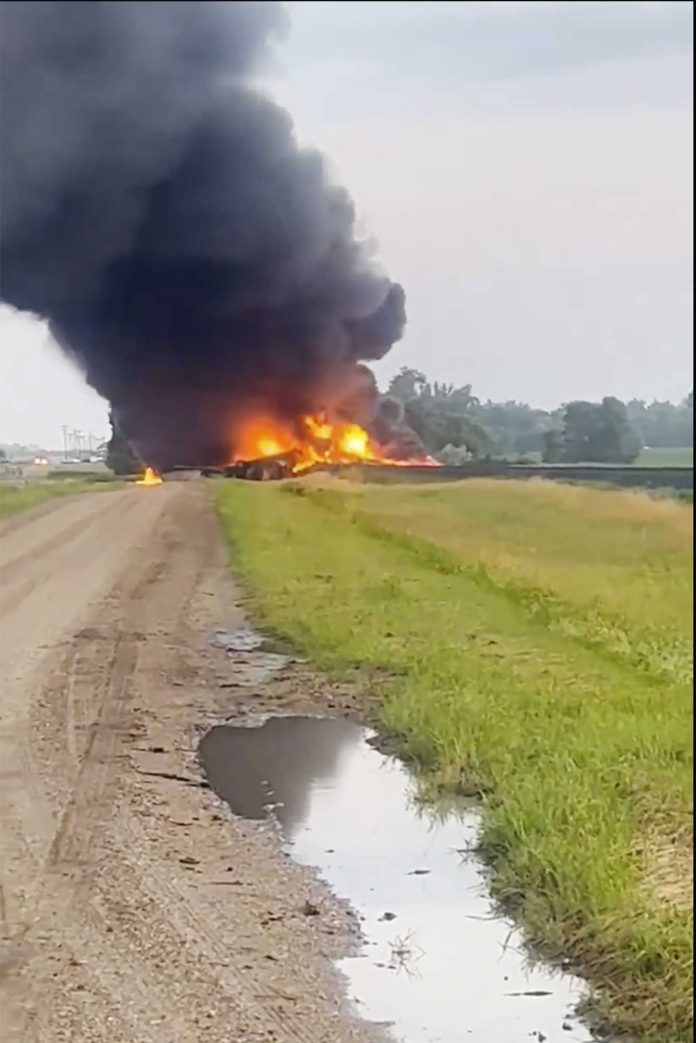
By JIM SALTER
Associated Press
Rail cars carrying hazardous material that derailed early Friday were still burning more than 12 hours later in a remote area of North Dakota, but officials said no one was hurt and the threat to those living nearby appeared to be minimal.
Twenty-nine cars of a CPKC train derailed around 3:45 a.m. in a marshy area surrounded by farmland that’s about 140 miles (225 kilometers) northwest of Fargo, said Andrew Kirking, emergency management director for Foster County.
By late afternoon Friday, responders were able to “go on the offensive” in fighting the flames and have had “some success knocking the fire down,” Kirking said. With water on both sides of the tracks, officials were still working to get equipment close enough.
The cars were carrying anhydrous ammonia, sulfur and methanol, said Bill Suess, spill investigation program manager for the North Dakota Department of Environmental Quality. The ammonia was the biggest risk, but wind was carrying the smoke away from the nearby town of Bordulac, which has about 20 residents.
“Wind has been in our favor on this,” Suess said. “That risk has greatly subsided. Still there — as long as fires are burning.”
Exposure to high concentrations of ammonia in the air can cause burning of the eyes, nose, throat and respiratory tract, and can result in blindness, lung damage or death, health officials say. Exposure to lower amounts can result in coughing and irritation of the nose and throat.
For now, officials do not plan to evacuate nearby residents, but that could change if the wind shifts, Suess said.
Kirking said the cause of the derailment wasn’t known. The engineer and conductor got away safely, he said.
Kirking said it appeared that 10 to 15 of the rail cars caught fire. Video posted on the social platform X showed the blaze burning intensely. It was still burning as of midday Friday. A railroad fire crew was on the scene.
CPKC said in a statement that it has “initiated its emergency response plan and launched a comprehensive, coordinated response.”
The railroad was the result of a merger last year of Canadian Pacific Railway and Kansas City Southern.



















